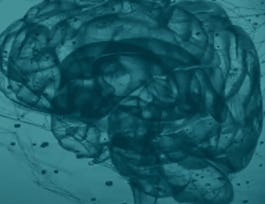Self-determination theory (SDT) is an empirically based theory of motivation and psychological development that is especially focused on the basic psychological needs that promote high quality motivation and wellness, and how they are supported in social contexts. SDT details how the styles and strategies of motivators such as parents, teachers, coaches, managers, and health-care professionals can promote or undermine engagement and the positive consequences that follow from it.


Introduction to Self-Determination Theory: An approach to motivation, development and wellness
Taught in English
Some content may not be translated
68,082 already enrolled
(491 reviews)
What you'll learn
Students will be able to define Self-Determination Theory.
Students will be able to explain how motivational strategies can impact engagement and performance.
Students will be able to summarize applications of SDT in a number of social contexts.
Details to know

Add to your LinkedIn profile
5 quizzes
See how employees at top companies are mastering in-demand skills


Earn a career certificate
Add this credential to your LinkedIn profile, resume, or CV
Share it on social media and in your performance review

There are 5 modules in this course
The first module of this course begins with an introduction and overview of Self-Determination Theory (SDT). This includes a discussion of the basic and historical principles of SDT as well as definitions of key terms. Module 1 continues with an introduction to one of SDT’s mini-theories, Cognitive Evaluation Theory (CET) and the core concept of intrinsic motivation. The impact of rewards on intrinsic motivation and the role of intrinsic motivation in video gaming are also discussed.
What's included
6 videos4 readings1 quiz
Week 2 focuses on two additional mini-theories within SDT: Organismic Integration Theory (OIT) and Basic Psychological Needs Theory (BPNT). The first four lectures in this module discuss OIT —describing the different types of motivation, organizing them along the continuum of relative autonomy, discussing what is meant by internalization, and describing the factors that facilitate and undermine autonomous motivation and internalization. Additionally, lectures in this module cover well-being and basic psychological needs theory (BPNT)—delving into what these basic needs are and providing evidence for their importance to well-being across cultures and in explaining day-to-day variations in happiness.
What's included
6 videos6 readings1 quiz
Week 3 delves deeper into people’s well-being and life goals…examining what makes us happier from one day to the next. The second lecture in this module introduces Goal Contents Theory (GTC), or the impact of intrinsic and extrinsic life goals on well-being. These lectures focus on how the pursuit of goals like money, fame, and image is associated with poor well-being even when these goals are achieved. Lectures in this module also center on mindfulness and the role of awareness in cultivating autonomy and on vitality -- or the energy available to the self, a central component of well-being and the role of nature in supporting vitality.
What's included
6 videos6 readings1 quiz
Module 4 focuses on the importance of basic psychological need fulfillment in several areas of life. The first lecture covers research demonstrating that doing good for others and contributing to one’s community are associated with greater well-being. The next lecture centers on one of the most important ingredients to well-being -- meaningful relationships and the fundamental importance of psychological need support to building quality relationships. Next, discussion turns to some of the most formative relations in one’s life -- the relation between parents and children. This lecture covers research demonstrating that need support from parents is associated with optimal growth and development in children. The next lecture focuses on the process of identity formation, or how one comes to understand and develop one’s identities, roles, and interests. Also, in this module, a lecture dedicated to the application of SDT to education. Specifically, this lecture covers the importance of motivation to learning and how teacher styles impact students’ motivation and learning outcomes. Finally, the last lecture examines work and organizations and discusses how need support from managers and the work environment impacts outcomes like retention, job satisfaction, corporate citizenship, and work engagement.
What's included
6 videos6 readings1 quiz
Module 5 focuses on the application of SDT in several different domains. The first lecture covers SDT’s application in the healthcare domain, including motivational predictors of weight loss, medication adherence, smoking cessation, and dental hygiene. The next lecture focuses on mental health and the importance of basic need support in psychotherapy, including examples of how therapists can support their clients’ needs. Next, we turn to the application of SDT to sports again including examples of research supporting the importance of autonomy support and how parents and coaches can facilitate athletes’ intrinsic motivation for sport. The next lecture discusses the ways in which culture influences people’s motivation and wellness and how culture acts as a pervasive influence on our need fulfillment. We continue to examine pervasive social influences in the following lecture by looking at the impacts of political and economic structures on motivation and need satisfactions…asking questions like how wealth disparities impact wellness. This will take us to our concluding lecture with final remarks on the importance of basic psychological need support in predicting quality motivation and positive outcomes. Last but not least, the final lecture provides practical takeaways to satisfy your own psychological needs.
What's included
6 videos6 readings1 quiz
Instructor

Offered by
Recommended if you're interested in Psychology

Dartmouth College

Johns Hopkins University

American Psychological Association

Arizona State University
Why people choose Coursera for their career




Learner reviews
Showing 3 of 491
491 reviews
- 5 stars
88.18%
- 4 stars
7.73%
- 3 stars
2.03%
- 2 stars
1.42%
- 1 star
0.61%
New to Psychology? Start here.

Open new doors with Coursera Plus
Unlimited access to 7,000+ world-class courses, hands-on projects, and job-ready certificate programs - all included in your subscription
Advance your career with an online degree
Earn a degree from world-class universities - 100% online
Join over 3,400 global companies that choose Coursera for Business
Upskill your employees to excel in the digital economy
Frequently asked questions
Access to lectures and assignments depends on your type of enrollment. If you take a course in audit mode, you will be able to see most course materials for free. To access graded assignments and to earn a Certificate, you will need to purchase the Certificate experience, during or after your audit. If you don't see the audit option:
The course may not offer an audit option. You can try a Free Trial instead, or apply for Financial Aid.
The course may offer 'Full Course, No Certificate' instead. This option lets you see all course materials, submit required assessments, and get a final grade. This also means that you will not be able to purchase a Certificate experience.
When you purchase a Certificate you get access to all course materials, including graded assignments. Upon completing the course, your electronic Certificate will be added to your Accomplishments page - from there, you can print your Certificate or add it to your LinkedIn profile. If you only want to read and view the course content, you can audit the course for free.
You will be eligible for a full refund until two weeks after your payment date, or (for courses that have just launched) until two weeks after the first session of the course begins, whichever is later. You cannot receive a refund once you’ve earned a Course Certificate, even if you complete the course within the two-week refund period. See our full refund policy.


